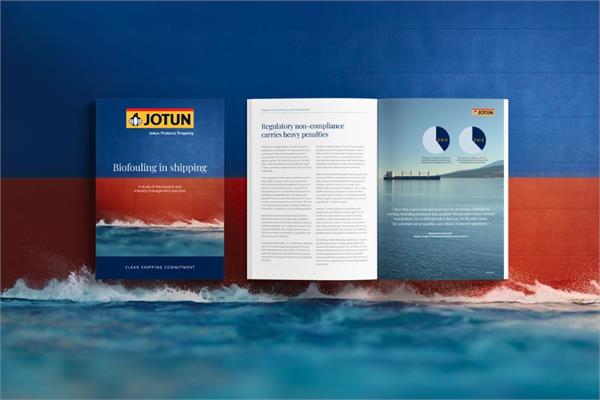
The Biofouling in Shipping report from Jotun, which surveyed participants across 11 countries, shows that while awareness of biofouling has increased compared to previous years, significant knowledge gaps remain within the industry.
The paints and coatings supplier Jotun has released a new report based on a survey of 1,000 ship owners and operators, shedding light on current trends and challenges in biofouling management
within the shipping industry. The findings reveal that many operators have suffered regulatory penalties or been denied port access due to inadequate biofouling control.
“How biofouling management contributes to the shipping sector’s goals of reducing carbon emissions and protecting marine biodiversity is increasingly recognised by port authorities, regulators, and operators alike. However, despite 79% of respondents prioritising hull performance, only 31% feel their company possesses sufficient knowledge of hull performance solutions. This underlines the urgent need to boost understanding, given the substantial environmental and economic consequences,” has stated Morten Sten Johansen, Global Category Director Hull Performance at Jotun.
The report also exposes the hidden costs associated with poor biofouling management:
- 41% of respondents have incurred regulatory penalties due to biofouling issues
- 38% have been refused entry to ports owing to non-compliance
“Perhaps most concerning, nearly half (49%) of those surveyed admit to avoiding ports with strict biofouling regulations—a strategy that will become increasingly unsustainable as global standards tighten. This transition aims to simplify management for those involved in daily operations. Nevertheless, having a robust biofouling management plan remains more important than ever,” has added Petter Korslund, Regulatory Affairs Manager Hull Performance at Jotun.
Operational impacts are significant as well. As a matter of fact, over half (50.4%) of ship owners report reduced fuel efficiency due to biofouling, representing lost opportunities for cost savings and progress towards decarbonisation. Despite this, one in five operators admit they are not using the most effective antifouling coatings for all vessels.
“Our findings show growing awareness of the link between biofouling management and operational efficiency, but there is still considerable room for improvement. Ship owners who adopt tailored biofouling management plans, including hull solutions suited to their specific trade routes, will gain a competitive advantage—maximising performance while cutting unnecessary costs and environmental harm. In an environment of tightening profit margins, minimising hidden expenses is crucial. With new regulations, including an impending legally binding global biofouling framework, our survey serves as a stark reminder of the cost of being unprepared,” has concluded Morten Sten Johansen.